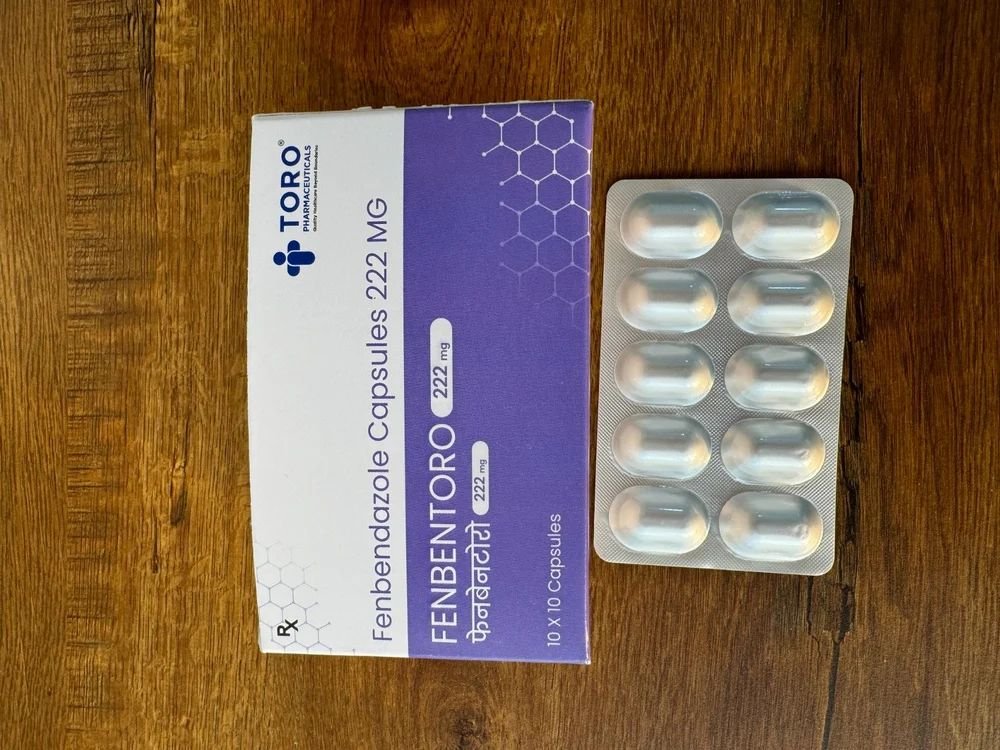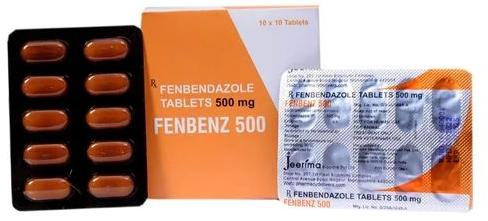Exploring the Devices Behind Fenbendazole and Its Influence on Animal Health And Wellness
Fenbendazole is an extensively used anthelmintic known for its effectiveness against different bloodsuckers. Its key system entails the inhibition of microtubule formation, which interferes with vital procedures in these pathogens. Past its antiparasitic buildings, fenbendazole also shows up to boost immune responses and possesses anti-inflammatory advantages. Understanding these diverse results could disclose brand-new applications for pet wellness. Concerns remain regarding its full potential and safety and security account.
The Pharmacokinetics of Fenbendazole
The pharmacokinetics of fenbendazole, a commonly made use of anthelmintic in vet medication, involves the research study of its absorption, circulation, metabolic rate, and discharging within animal systems. After administration, fenbendazole is rapidly taken in from the gastrointestinal system, with peak plasma focus happening within hours. Its circulation is influenced by aspects such as cells binding and lipid solubility, enabling it to pass through different tissues effectively. The medication undergoes considerable metabolic process mostly in the liver, where it is transformed into active and inactive metabolites. These metabolites play a role in the drug's overall efficacy and safety and security account. Discharging happens mainly with feces, with a smaller sized proportion eliminated via pee. The half-life of fenbendazole varies among species, which affects application regimens. Recognizing these pharmacokinetic residential properties is necessary for enhancing its therapeutic usage and making certain reliable parasite control in vet techniques.
Systems of Action Versus Parasites
Fenbendazole exerts its antiparasitic results mostly through the restraint of microtubule formation in parasites. This disturbance influences their architectural stability and cellular features, resulting in impaired basal metabolism. As an outcome, the medication successfully jeopardizes the survival and recreation of numerous parasitical organisms.
Inhibition of Microtubule Formation
Restraint of microtubule formation stands for an important mechanism where certain anthelmintic representatives, including fenbendazole, apply their effects on bloodsuckers. Fenbendazole binds to tubulin, a protein that develops microtubules, disrupting the polymerization procedure necessary for microtubule assembly. This interruption impairs crucial cellular features, including mitosis, intracellular transportation, and structural stability. As microtubules play a crucial role in preserving the form and feature of parasitical cells, their restraint brings about cell cycle apprehension and ultimate fatality of the bloodsucker. This system is especially efficient versus nematodes, as their dependence on microtubules for mobility and nutrient absorption makes them susceptible to fenbendazole. The inhibition of microtubule formation is a crucial aspect of fenbendazole's healing effectiveness in vet medication.
Disturbance of Energy Metabolism
Interfering with power metabolism is another vital system whereby fenbendazole targets parasitical microorganisms. This anthelmintic changes the power manufacturing paths within bloodsuckers, largely influencing their ability to generate adenosine triphosphate (ATP) By inhibiting sugar uptake and disrupting mitochondrial feature, fenbendazole limitations the energy resources vital for the survival and reproduction of these organisms. Therefore, parasites become significantly vulnerable to ecological stresses and immune responses. The interference in energy metabolic rate not only influences the parasites straight however additionally lowers their capacity to absorb nutrients, further harming their growth - fenbendazole. On the whole, the disruption of power metabolic rate represents a fundamental facet of fenbendazole's effectiveness versus different parasitic infections, adding significantly to improved pet wellness results
Prospective Side Impacts and Safety Account
The potential negative effects and security profile of fenbendazole warrant mindful factor to consider, especially in veterinary applications. While normally pertained to as safe, some animals may experience negative responses, consisting of stomach disturbances such as vomiting and diarrhea. In addition, neurological signs, although uncommon, have been reported in delicate people, highlighting the need for monitoring during treatment.

Fenbendazole's safety and security in different varieties, consisting of pets and pet cats, has been documented, yet dose and period of treatment need to be carefully managed to lessen dangers. Expectant or lactating pets might also require special interest, as the results on creating fetuses or nursing offspring are not completely comprehended.
Normal vet consultations can help reduce prospective side effects and guarantee the medication is provided properly. While fenbendazole is an effective anthelmintic agent, vigilance concerning its side results is necessary for preserving animal health.
Fenbendazole's Impact on Immune Feature
Fenbendazole has actually been noted for its potential to regulate body immune system responses in pets. Its anti-inflammatory properties might add to boosted immune function, providing a twin advantage in taking care of health and wellness (fenbendazole 222). Understanding these results is necessary for examining fenbendazole's role in vet medicine
Body Immune System Inflection

Anti-inflammatory Properties
Anti-inflammatory effects represent a considerable element of fenbendazole's impact on immune feature. Research study shows that fenbendazole might minimize the production of pro-inflammatory cytokines, which are critical in mediating inflammatory responses. By regulating these cytokines, fenbendazole can potentially minimize inflammation-related conditions in animals. This anti-inflammatory action not just help in handling signs connected with various diseases however also enhances total body immune system effectiveness. Furthermore, its capability to promote a well balanced immune feedback aids stop extreme inflammatory damage, which can lead to persistent wellness problems. Fenbendazole's duty in swelling management emphasizes its relevance in veterinary medicine, giving a dual benefit of antiparasitic activity and immune system support for pet health.
Applications Past Conventional Parasitical Infections
While mainly identified for its efficiency versus different parasitical infections, fenbendazole has actually garnered interest for potential applications yet conventional extent. Recent researches suggest that fenbendazole might have valuable impacts on cellular wellness Clicking Here and immune feedback, making it a fascinating candidate for handling other health and wellness problems in animals. Its reported anti-inflammatory homes might provide relief for pets experiencing from persistent inflammatory conditions. In addition, some research suggests that fenbendazole can play a duty in supporting the total wellness of animals by improving vitamins and mineral absorption and stomach wellness. Moreover, its prospective as an accessory treatment in cancer cells therapy has actually sparked rate of interest, as initial findings suggest it may hinder lump cell development in specific contexts. These diverse applications highlight fenbendazole's adaptability, motivating additional expedition into its diverse benefits for animal health beyond its conventional usage as a deworming representative.
Future Study Instructions and Effects for Pet Health And Wellness
The exploration of fenbendazole's potential applications has opened up brand-new opportunities for research study focused on improving animal health. Future studies can concentrate on its efficiency against a broader variety of virus, including bacteria and infections, therefore increasing its function in vet medication. The ramifications of fenbendazole's mechanisms, such as its impact on immune inflection, warrant additionally investigation to recognize exactly how it can bolster general wellness in different species.
In addition, research study may discover perfect does and formulas to optimize effectiveness while minimizing possible side impacts. Investigating fenbendazole's collaborating effects with various other medications might lead to a lot more efficient therapy procedures. Longitudinal researches assessing lasting outcomes in pets treated with fenbendazole can offer beneficial understandings into its security and performance. In general, the ongoing expedition of fenbendazole provides appealing possibility to improve pet wellness, necessitating a collective strategy among researchers, vets, and description pharmaceutical programmers to help with innovations around.
Frequently Asked Concerns
Can Fenbendazole Be Made Use Of in Animals for Parasite Prevention?
The concern of whether fenbendazole can be made use of in animals for bloodsucker prevention matters, as producers look for reliable therapies (fenbendazole). Research study shows it might provide benefits, however proper guidelines and veterinary guidance are necessary for safe use
What Is the Suggested Dose of Fenbendazole for Various Pets?

Exist Any Kind Of Recognized Medication Interactions With Fenbendazole?
Present understanding indicates that fenbendazole might connect with specific medications, potentially influencing their efficiency or metabolic process. Veterinary professionals advise speaking with a vet to evaluate individual pet situations and identify any kind of feasible interactions prior to management.
How Does Fenbendazole Contrast to Other Antiparasitic Medications?
Fenbendazole is frequently contrasted to various other antiparasitic medications based upon effectiveness, range of task, and safety accounts. It is preferred for its effectiveness versus a wide variety of bloodsuckers while normally exhibiting marginal side results in pets.
Is Fenbendazole Effective Versus Viral or Microbial Infections in Pets?
The efficiency of fenbendazole versus viral or bacterial infections in animals stays unproven. Research study mainly concentrates on its antiparasitic properties, fenbendazole capsules with minimal evidence sustaining any type of duty in treating non-parasitic infections in vet medicine.